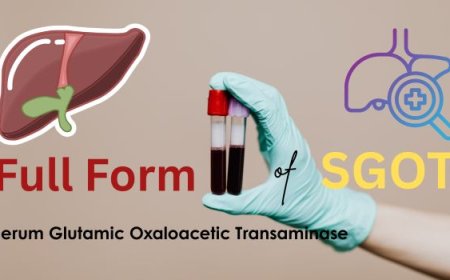NEET UG Chapter-wise Weightage 2025: Which NEET UG Chapters Should You Focus On?
Check the NEET UG chapter-wise weightage 2025 for Physics, Chemistry, and Biology. Know the important topics, marks distribution, and best strategies to score high in the exam.

NEET UG Chapter wise Weightage 2025: One of the most difficult medical entrance exams in India exists under the name National Eligibility cum Entrance Test (NEET). The specification of a solid score in NEET UG represents the gateway to secure admission in leading medical institutions. Chapter-wise weightage serves as the best approach for preparing for the upcoming exam. Understanding which chapters carry greater weightage enables you to select important topics which raise the probability of scoring high in the exam. This article delivers comprehensive information about NEET UG Physics Chemistry and Biology chapter distribution weights. The response comprises answers to common questions which aim to help students prepare better for the exam.
NEET UG 2025 Overview
Candidates must understand the already settled NEET Exam Pattern 2025 which will replicate previous tests through its 180 multiple-choice questions distributed across Physics Chemistry and Biology sections for the NEET UG exam of 2025. The following paragraph contains important details regarding the NEET UG Examination.
|
Examination Name |
National Eligibility cum Entrance Test (NEET) |
|
Conducting Authority |
National Testing Agency (NTA) |
|
Examination Level |
UG - Undergraduate (National Level) |
|
Frequency of the Exam |
Once a year |
|
Subjects Included |
Physics, Chemistry, and Biology (Botany + Zoology) |
|
Total No. of questions |
180 questions |
|
Courses Offered |
MBBS, BSc Nursing, AH, BAMS, BDS & BVSc |
|
Contact Details |
Phone: 011-69227700, 011-40759000 Email: neetug2025@nta.ac.in |
|
Official Website |
www.neet.nta.nic.in |
Candidates participating in the NEET UG exam should follow the 2025 registration dates because early registration reduces the risk of time-related complications. Your NEET OMR Sheet serves as an assessment instrument for measuring exam performance by requiring precise response during testing times. The NEET 2025 cut off scores function as the main criterion to select the suitable colleges for admission. Success in NEET UG preparation requires complete knowledge of NEET UG 2025 syllabus and careful attention to vital chapters.
NEET Chapter-wise weightage - Important Topics
The NEET UG examination uses the NCERT syllabus containing main content from Physics, Chemistry and Biology. The subjects are divided into sections described by chapter questions that present heavier content information relative to other chapters. Students who know the high-weightage chapters can create a study plan for the specific chapters expected to be queried during the exam.
The subject distribution of NEET marks appears as follows in brief.
|
Subject Name |
No. of ques. |
Marks |
|---|---|---|
|
Physics |
45 |
180 |
|
Chemistry |
45 |
180 |
|
Botany |
45 |
180 |
|
Zoology |
45 |
180 |
|
TOTAL |
180 |
720 |
Read More: How to Prepare for NEET at home?
NEET UG Chapter-wise Weightage Breakdown
1. Physics Chapter-wise Weightage
People generally consider physics as among the most challenging subjects in NEET examination. Physics in NEET covers both Class 11 and Class 12 topics. The subject matter in different chapters requires students to follow various approaches between mathematical calculations and conceptual applications. The knowledge of chapters with higher weightage lets you make your preparation efforts more efficient. The following table shows the distribution of weightage across chapters as references for applicants.
|
Chapter & Topics |
Weightage (%) |
|
Centre of Mass (Chapter – System of Particles and Rotational Motion) |
1% |
|
Gravitation |
3% |
|
Kinematics (Chapters – Motion in a straight line, Motion in a Plane) |
2% |
|
Laws of Motion |
7% |
|
Mechanical Properties of Solids & Fluids |
3% |
|
Oscillations |
3% |
|
Rotational motion (Chapter – System of Particles and Rotational Motion) |
1% |
|
Motion of System of Particles and Rigid Body |
7% |
|
Units and Measurement |
2% |
|
Waves |
4% |
|
Work, Energy, and Power |
4% |
|
Kinetic Theory |
2% |
|
Properties of Bulk Matter |
3% |
|
Thermal Properties of Matter |
2% |
|
Thermodynamics |
7% |
|
Magnetic Effects of Current & Magnetism |
6% |
|
Electric Charges & Fields |
2% |
|
Electromagnetic Waves |
1% |
|
Electrostatic Potential & Capacitance |
2% |
|
Electrostatics |
3% |
|
Alternating Currents |
3% |
|
Current Electricity |
6% |
|
Electromagnetic Induction |
2% |
|
Semiconductor Electronics: Materials, Devices and Simple Circuits |
6% |
|
Atoms & Nuclei |
5% |
|
Dual Nature of Radiation and Matter |
4% |
|
Ray Optics & Optical Instrument |
5% |
|
Wave optics |
4% |
2. Chemistry Chapter-wise Weightage
The field of chemistry includes three principal sub-sections which are Physical Chemistry as well as Organic Chemistry and Inorganic Chemistry. The weight of Organic Chemistry exceeds other divisions and practical concepts from Physical Chemistry often appear in problem sets. Aspirants can find weight distributions per chapter in the following table.
|
Chapter & Topics |
Weightage (%) |
|
Inorganic Chemistry-I (22%) |
|
|
Chemical Bonding |
8% |
|
p-block |
6% |
|
Periodic Table & Periodicity in Properties |
4% |
|
Hydrogen |
2% |
|
s-block |
2% |
|
Inorganic Chemistry- II (12%) |
|
|
Coordination Compounds |
5% |
|
d-block & f-block Elements |
3% |
|
Metallurgy |
2% |
|
Qualitative Analysis |
2% |
|
Organic Chemistry- I (7%) |
|
|
General Organic Chemistry, Practical Organic Chemistry |
4% |
|
Hydrocarbons |
3% |
|
Organic Chemistry- II (27%) |
|
|
Aromatic Compounds |
6% |
|
Haloalkane, Alkyl Halide, Alcohol & Ether |
3% |
|
Biomolecules, Polymer |
3% |
|
Carbonyl Compounds |
3% |
|
IUPAC & Isomerism |
3% |
|
Aldehydes, Ketones, and Carboxylic Acids |
3% |
|
Organic Compounds Containing Nitrogen |
3% |
|
Chemistry in Everyday Life, Environmental Chemistry |
3% |
|
Physical Chemistry- I (17%) |
|
|
Mole Concept |
5% |
|
Ionic Equilibrium |
4% |
|
Atomic Structure & Nuclear Chemistry |
2% |
|
Chemical Equilibrium, Gaseous State |
2% |
|
Thermodynamics and Thermochemistry |
2% |
|
Redox Reactions |
2% |
|
Physical Chemistry- II (15%) |
|
|
Chemical Kinetics |
4% |
|
Solution & Colligative Properties |
4% |
|
Electrochemistry |
3% |
|
Solid State |
2% |
|
Surface Chemistry |
2% |
3. Biology Chapter-wise Weightage
The subject of biology stands as the top category for scoring among all NEET students. The subject matter of Biology requires less time than both Physics and Chemistry materials. Most questions in the examination test students on topics from the Class 12 curriculum. Learning Biology well will lead to substantial score improvement. Students can check the chapter-weighting breakdown in the provided table.
|
Chapter & Topics |
Weightage (%) |
|
Botany |
|
|
Genetics and Evolution |
25% |
|
Ecology and Environment |
16% |
|
Plant Physiology |
14% |
|
Plant Diversity |
12% |
|
Cell Structure & Function |
10% |
|
Plant Reproduction |
9% |
|
Morphology of Flowering Plants |
7% |
|
Plant Anatomy |
4% |
|
Bio-molecule |
3% |
|
Zoology |
|
|
Human Physiology |
45% |
|
Human Reproduction & Reproductive Health |
16% |
|
Animal Kingdom |
10% |
|
Origin & Evolution |
10% |
|
Human Health & Diseases |
9% |
|
Structural Organization in Animals |
5% |
|
Animal husbandry |
3% |
|
Biology and Human Welfare |
2% |
Read More: Total AIIMS Seats in India
Conclusion
Knowledge of NEET UG chapters weightage enables students to create best study plans which will help them achieve higher scores. Your examination preparation requires attention to high-weightage chapters yet it must include all syllabus content.
Frequently Asked Questions (FAQ)
Q1. How can I determine which chapters have the most weight in NEET?
Ans. Examining previous years' question papers determines the important weightage of each chapter in the NEET exam. Studying chapters proven to appear commonly in previous medical exams holds the highest priority.
Q2. How do I score well in Biology for NEET?
Ans. Biology is the most scoring subject. Focus on concept comprehension particularly within Human Physiology and Genetics sections. Memorization functions as the primary tool for achieving good academic results in Biology classes.
Q3. How many questions come from each subject in NEET?
Ans. NEET consists of 180 questions in total. Physics and Chemistry together account for 90 questions (45 each), while Biology contributes 90 questions (45 from each Class 11 and 12).
What's Your Reaction?













![What is the Difference Between NExT and NEET PG? [Updated 2025]](https://neetcoachingsikar.com/uploads/images/202504/image_430x256_680fd17ee9715.jpg)















![How Many Candidates Appeared in INI CET 2025? [Official Numbers Inside]](https://neetcoachingsikar.com/uploads/images/202505/image_140x98_682db1a9daa26.jpg)

